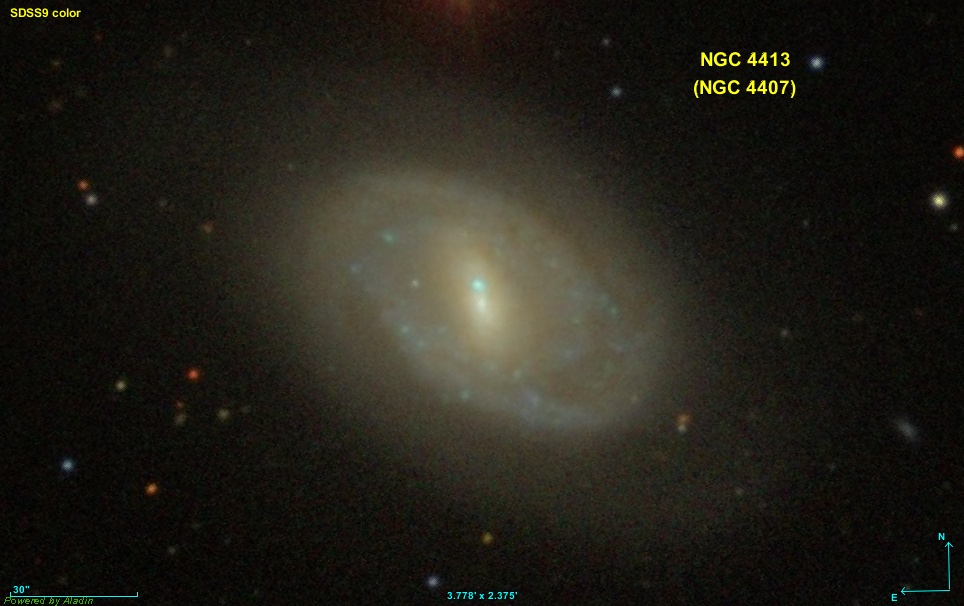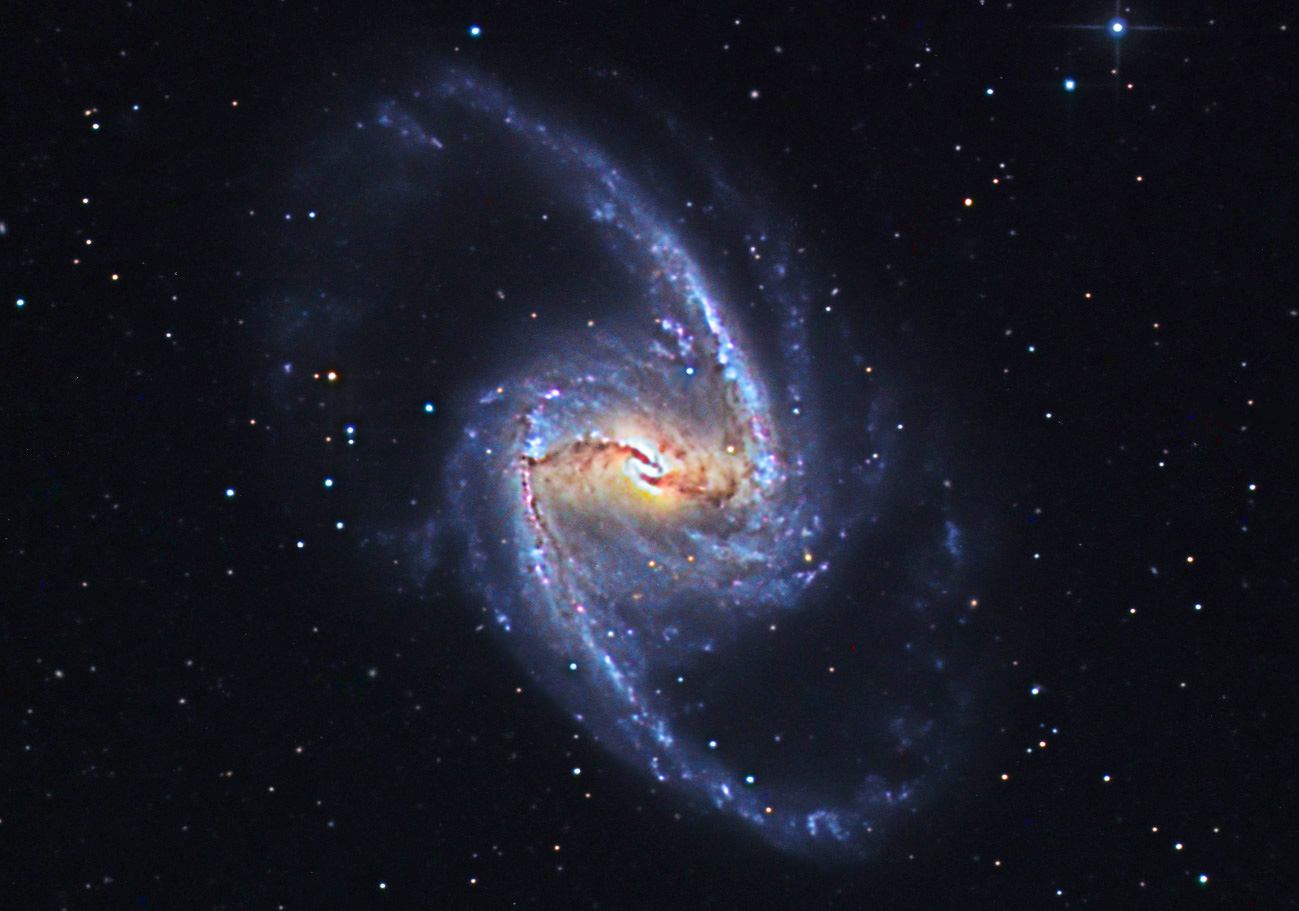johnnydeep wrote: ↑Sun Oct 11, 2020 12:17 am
NCTom wrote: ↑Sat Oct 10, 2020 11:03 pm
I can see why the Virgo is such a favorite shot.
There are two especially pretty barred spirals to the left of lower center adding to an already beautiful composition. Happy Birthday, Johnny.
I think you must mean these two? (from a higher res pic I found elsewhere*, here zoomed in and rotated) (Oh, and thanks!)
[(*) the original larger image is
http://www.sun.org/uploads/images/Virgocluster.jpg]
99832F3A-25B8-4C1A-B690-54D8AAA20789.jpeg
Johnny, is it your birthday? Or was yesterday your birthday? In any case, congratulations!
As for those barred galaxies in the Virgo cluster, here they are. The one on the left is NGC 4440 and the one on the right is NGC 4413.
Both pictures were taken with the same telescope and through the same filters, so we can really see some interesting differences between them. NGC 4440 is all yellow, and, as far as we can tell, totally devoid of any young stars or star formation.
NGC 4440 was once a galaxy very similar to NGC 1365. It had a strong bar (and it still does), and two long majestic spiral arms, and it still does. But when it was young and full of hot massive stars, it looked more wild and unkempt.
Note the bar-end enhancements in NGC 4440. Strongly barred galaxies often display an increased amount of star formation where the bar meets the arms. You can see a hint of increased star formation at the ends of the bar of NGC 1365, too.
Now all the bling and flashes and irregularities of NGC 4440 are gone, because all the massive young stars have died, and instead we can see the combined effect of billions of small old red stars making up the underlying highly symmetrical structure of the galaxy.
NGC 4413 is more like NGC 4725, in that its arms are pretty weak, and instead it is dominated by a star-forming ring. Actually though, the ring in NGC 4413 is made up of the two major arms, which overlap to seemingly form a ring.
Note the colors of NGC 4413. The outer arms are yellow and very fuzzy, so that they look more like a halo than two arms. But the inner parts of the arms, while also mostly yellow, are dotted with little knots of cyan. In SDSS photos, blue means young stars and green means red emission nebulas. The fact that the knots here are cyan suggests to me that not only do we see some young stars in NGC 4413, but we also see small amounts of ongoing star formation.
There is a big bright knot of cyan in the bar, "above" what must be the nucleus. That can only mean that a big cluster of bright blue stars have recently formed in the bar, and this cluster is still associated with some emission nebulosity.
Finally, take a look at this Hubble image of barred spiral galaxy NGC 1073. Look carefully, and you'll see that there is a bright region of bluish star formation in the bar, to the right of the nucleus.
Ann
 Virgo Cluster Galaxies
Virgo Cluster Galaxies



